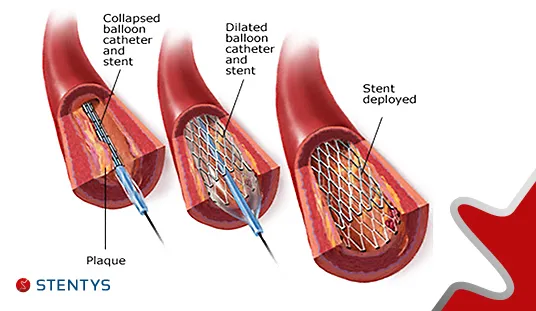Samsung Medical Center scientists of Seoul (South Korea) have discovered that people with type 2 diabetes who maintain good glycemic control allow to reduce the risk of infarction and stroke in those who have implanted a coronary 'stent'.
"Although intensive glucose control has no benefit in the rate of cardiovascular events, these data suggest that it can be an improvement after undergoing cardiac catheterization," explained Joo-Yong Hahn, author of this study that publishesThe magazine 'Circulation: Cardiovascular Interventions'.
Coronary disease is the main cause of death in people with type 2 diabetes and, although it is known that strict glycemic control is key to the deterioration of small blood vessels that are involved in diabetes, it is not clear if the same thing happens withThe main arteries that bring the blood to the heart.
To check, Hahn and his team have analyzed the data of 980 patients with type 2 diabetes who had undergone coronary angioplasty to clean the artery and place a 'stent'.All of them underwent a seven -year follow -up, in which they measured their blood sugar levels through A1C (HBA1C or A1C hemoglobin), and took into account their risk of death, infarction, stroke or a new catheterization.
The researchers defined a good glycemic control as an A1C score below 7 and a poor control such as an A1C greater than 7. Then they matched the patients according to other risk factors.
Among the 980 patients, the risk of obtaining negative results was 25 percent lower in those who maintained good blood glucose control.And among patients' couples, they saw that around 37 percent of those who had a low glycemic control had a worse prognosis during the seven years of follow -up, with higher infarction rates or stroke.
"The effects of glucose control on type 2 diabetes can differ according to the patient's characteristics, as if they have suffered a previous cardiovascular event," said Hahn, which nevertheless believes that more jobs are needed to confirm whether aStrict blood glucose control after receiving a 'Stent' can improve the prognosis of these patients.


